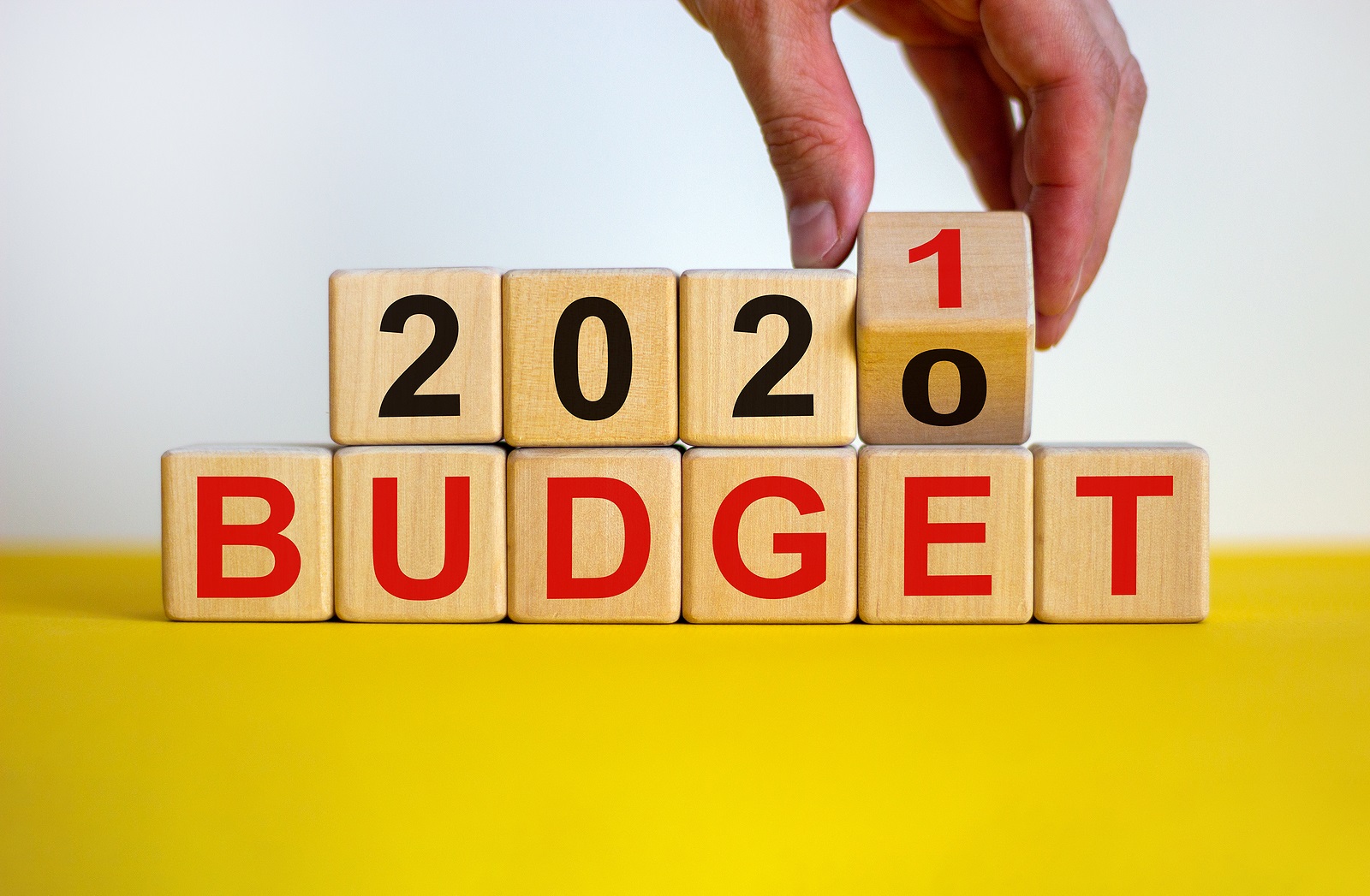News
What You Need to Know About IRA and 401k Contributions In 2021
The Internal Revenue Service recently reported changes to the 401k and IRA. The agency’s announcements to Congress issues new regulations. Each alteration will impact retirement accounts and 401(k) contribution limits in 2021. Here are a few things Americans need to know regarding their announcement.
What Savers Can Expect
Most 401(k), 403(b), 457 plans, and Thrift Savings Accounts will be within the same framing as before. The current rules would allow people age 50 and over to save money by contributing $19,500, or $26,000 to a traditional IRA. Likely, regulations will not change for SIMPLE retirement accounts. They typically maintain $13,500 contribution limits. The IRS allows individual retirement account contribution limits to remain at $6,000. Additional catch-up contributions for older contributors will also stay at $1,000.
There are a few changes that the IRS has announced regarding IRA and 401k contributions for 2021:
Tax Deduction Phase-outs for Traditional IRA Contributions
Taxpayers will be able to deduct traditional IRA contributions. To qualify, recipients may not participate in employer-sponsored retirement accounts. They also may not make above earnings limits. This change subjects employees to reduced or eliminated deductions. This ruling also includes spouses covered by the same plan as the primary recipient.
2021 Phaseout Ranges
In 2021, single taxpayers must consider the phaseout range which will increase by $1,000. Ranges for spouses who file jointly with coverage from employer-sponsored plans have changed. It is now $66,000 to $76,000 and is set to increase at $105,000 to $125,000. Limits to Couples’ workplace plans that only cover spouses individually are necessary. The traditional IRA contribution will require a higher phaseout range. The changes to IRA and 401k regulations are not necessarily the same for every situation. If separate plans cover both spouses, the range is consistent with 2020, remaining at $0 to $10,000. Look at the IRS publications for the most current regulations and info regarding other aspects specific to your overall financial situation.
Roth IRA Contributor Prerequisites
Some of the changes include income limits for Roth IRA contributions. Their income phaseout ranges for 2021 include the following.
Roth IRA phaseout ranges:
• Single and heads of households – $125,000 to $140,000 (an additional $1,000 from 2020)
• Married couples who file jointly – $198,000 to $208,000,
• Married couples filing separately – $0 to $10,000 (unchanged)
Saver’s Credit income limits:
• Low- and moderate-income couples file jointly – $66,000 (an additional $1,000 from 2020)
• Heads of the household – $49,500
• Single individuals / married filing separately – $32,500
Rules for IRA and 401k contributions, when first released, will underline many adjustments. It is up to you to stay updated. If you are curious about what is in store for you, it is always wise to be alert. Remember, tax changes happen every year. The IRS has to release any changes to the public before they become active.
Most will want to wait for more detailed information from the IRS before taking any action. It would be best to learn as much as you can about the forthcoming changes. They will likely affect any significant decisions.
Giving Thanks and Giving Back
As COVID-19 continues to shape our lives and our future, many Americans give thanks and give back to others less fortunate during this pandemic. Some have had personal experiences that lead them to ease others’ financial stresses by providing directly or through other institutions. Donors are giving to resolve the inequities in our society that others are facing during this time.
2020: A Timeline Recap
2020 has been unlike any other thanks to the COVID-19 pandemic, our strange stock market, and social unrest leading up to the Nov. 3rd Presidential Election. This timeline recap is for you to see what we have already been through as we look toward a brighter future as we assess what we have learned from this year:
How to Adapt and Financially Prepare for 2021
If we could look in a crystal ball, we would have a clear picture of how we should financially prepare for 2021. We can only guess what lies ahead for us next year basing on our experiences this year. 2020 has been tough on many- business closings, lay-offs, disruptions to learning, health and social concerns, and financial stress.
Don’t Let Short Term Events Change Your Investment Goals
With every change in the world, there always seems to be the temptation to make an impulsive financial decision, especially when it comes to investing. This year especially was difficult for investors who made such decisions when the coronavirus hit hard and upended the stock market bringing a lot of panic selling with it. Events like the coronavirus and this year’s presidential election are always impactful when it comes to investor markets, but you need to be careful about investment decisions made solely on market movements. You can keep your long-term goals and continue building wealth if you follow certain tips.
Hold Steady When There’s A Sudden Dip
The COVID-19 recession was not a typical recession since a global pandemic is a rare event, but there will always be future corrections and recessions when economic activity reaches its peak and has to slow down. A recession certainly can cause a drop in your portfolio, especially during a volatile stock market period, but this is often only temporary. Unless a company whose stock you own is actually in danger of going bankrupt and becoming insolvent, chances are it’s going to rebound and perform a lot better once the market stabilizes again. In fact, a market dip could be the perfect time to buy more stocks or mutual fund shares.
Watch Out For Bubbles
Sometimes certain industries show promise of becoming the future of consumer demand, but they can end up being bought into too prematurely at times. For example, back in the early 2000’s, many investors were buying into new web-based companies and those they expected to become tech giants, and as a result too many stocks became overpriced and caused market bubbles. When your investments start becoming unusually high valued, it’s usually a good idea to sell off overvalued assets and place your funds in more stable assets until the market cools.
Pay Attention To Government Regulations
One issue you do need to be aware of is government actions in response to major events that could impact your investments. For example, the Dodd-Frank Act greatly affected the real estate market, and new tax regulations are always affecting how investors allocate their assets. It’s important to stay informed about how regulations will affect various industries, especially sectors like energy and manufacturing, and consider whether you need to diversify more out of those industries. You should also consider how capital gains taxes and dividend taxes affect your assets, and also move assets around between tax-deferred accounts and standard brokerage accounts.
Be Aware Of The Federal Reserve’s Interest Rate Changes
Another thing that influences the stock market is the Federal Reserve, and when it adjusts the federal funds rate, the market can move up and down. It’s often discussed that when interest rates go up and the stock market trends down, the bond market is the place to go. But before you consider adjusting your portfolio into bonds, consider where you are in your career, and when you expect to retire. Bonds tend to bring in much lower earnings, and they are not a great hedge against inflation. If you’re interested in other investments during interest rate changes, and you’re willing to take on a little risk, you might consider investing in alternative assets such as real estate or even precious metals.
Have A Budget For Retirement And Plan What You’ll Do When You Have To Take Distributions
Remember, if you own certain retirement accounts, you have to take minimum distributions from it by a certain age as specified by the IRS. The good news is they’ve bumped the age back from 70 1/2 to 72 for certain individuals. But once you start taking those distributions, you need to make sure they are being budgeted wisely so you can guarantee income will last all throughput your retirement.
Holiday Savings Strategies 101: Plan and Execute
The holiday season is the time of year when personal expenses are likely to increase. Whether it may be travel expenses, events, or retail spending. Start preping your holiday savings strategies now. The 2020 holiday shopping season spend is expected to be substantial, but likely less than 2019’s Brick-and-mortar retail and e-commerce spending of $1.007 trillion. Today, holiday shoppers spend less time looking for gifts, but spend more money, especially when shopping online. On average, shoppers in 2019 distributed their holiday spend among the following:
- $596 on experiences
- $511 on gifts
- $389 on non-gifts
Fall Festivities and Socializing- Safely.
Socializing is critical for mental health, and people who associate with others live longer. Research also concludes that isolation can often lead to loneliness, depression, and other health problems. Especially now, during COVID-19, our desire to connect with others is heightened. Before the fall season changes to winter and cold weather arrives, get out and enjoy the season- but do so safely. Here is a list of ideas to safely enjoy fall festivities until we experience brighter days ahead in a post-COVID-19 world:
The 2020 Election: Check Your Emotions and Stay Invested
November third is fast approaching, and you may be wondering how the 2020 Presidential election might impact your portfolio. Here is what we know from a historical perspective:
Avoid Covid-19 Medicare Scams
Older Americans on Medicare have become the focus of criminals. According to government officials, they are now utilizing various fraud schemes associated with the coronavirus pandemic. The common goal of these criminals is to get an older person’s money or Medicare number. In recent months, the Department of Health and Human Services Office of Inspector General has received over 1,400 fraud complaints associated with Covid-19. The office also acknowledges that many frauds often go unreported. This is because the victims are too embarrassed or they may not know how or where to report what happened to them.
Avoid Getting Ripped Off
There are two things older Americans need to remember to avoid being ripped off.
*Medicare does not contact its clients and ask them for their Medicare number. It already has their Medicare number. They won’t ask for any other sensitive information like a credit card number.
*Medicare won’t contact a client out of the blue with a social media post, text message, phone call, or email. Any unsolicited communications from Medicare is a sign of a scammer.
Script By Phone
It is recommended for individuals to have a script near their phone. This is an important tool that can be used to shut down scammers. It could be a simple statement that a person doesn’t give out their personal information to any type of unsolicited call. Should the caller claim to be from a doctor’s office, a person should contact their doctor’s office with a phone number they know is real.
Medicare Contact
Older Americans need to realize that Medicare works in many ways like a private-sector insurer. It will commonly contact its clients by mail. If a person has not initiated contact with a Medicare representative, they should realize that getting a random phone call from Medicare just won’t happen. If anyone believes they are experiencing Medicare fraud involving Covid-19 they can report it online. They can also call 800-447-8477.
Information
Data that someone can use to identify a person is known as Personally Identifiable Information (PII). This includes such things as email addresses, Social Security numbers, financial account numbers, driver’s license numbers, and more. One of the most effective ways to avoid being scammed when contacted by a person claiming to be from Medicare is to hang up on them.
Scams
There are various scams associated with Covid-19 that focus on older Americans.
*Facebook Accounts – Older Americans are having their Facebook accounts hijacked. When this is done, another person will pose as someone who has received an HHS grant because of the Covid-19 pandemic. The amounts could be up to $15,000. The HHS does issue grants but only to researchers.
*Scammers have contacted older Americans and told them they are eligible for a Covid-19 Wellness Kit. It would have face masks, hand sanitizer, and more. Some were promised a Covid-19 test kit they could use in their home. Others were offered additional Medicare coverage. All of these items came with a price and nothing was delivered.
*Scammers have gone to the home of older Americans and administered Covid-19 tests that are fake. Some have also had fake drive-through test sites. There have also been fake cures and treatments provided.
*Scammers have called and posed as hospital or medical employees. They then tell older Americans their doctor wants to test them for Covid-19. These scammers will claim to be setting up an appointment that is fake and will require a copay be given in advance by credit card.
Older Americans should be suspicious of any unexpected visitors or callers. They should never respond to a text message about Covid-19 or open any hyperlinks. On social media, any sites that provide offers or ads about Covid-19 testing should be ignored. Ignore anyone pretending to be a Covid-19 contract tracer. Real contact tracers never request a person’s financial information or Medicare number. Following these suggestions is a big step toward avoiding being scammed by a criminal.
Planning For Retirement In The “New Normal”?
The world of COVID-19 is, at least for the foreseeable future, the new normal of society. That means that there’s no time to slow down on retirement investing, as those same deadlines are coming up as quickly as ever. Below are some of the most important things to keep in mind during this unusual era.
Look at Your Estate Plan
With the uncertainty of the times, it does make sense that many would start thinking about what could happen with their families if a worst-case scenario was to occur. While you may not need to panic, taking the time to update your estate plan is a sensible way to deal with the current state of the world. Take a look at your current plan, determine if it makes sense for the current atmosphere, and then make the changes that will help you to feel the most comfortable going forward.
Fund What You Can, When You Can
The IRS has once again increased the amount of money you can put into your retirement account each year, with the total contribution limit raised to $19,500 for 2020. This may only be an increase of five hundred dollars for the year, but it’s a good reminder to invest money in your retirement while you have the ability to do so. Things are less certain than ever before, so funding your retirement account while you’re still financially stable simply makes sense.
Let Your Money Work
Not only can you fund your retirement more easily than ever before, but you may now avoid some of the required distributions that may have been required of you. If you can afford to avoid the distribution, try to let your money go to work for as long as you can. Keeping your money in your retirement account is going to allow you to keep it safer for a long period of time, which should in turn allow you to get more from your overall retirement investments. Now that you’ve got the choice, you can keep your money working instead of pulling it out.
Understand Market Volatility
While putting your money to work makes sense, it’s important to remember that the markets are poised to be quite volatile. As such, it would be wise to avoid taking those steps that would lead to reducing your current investing power if at all possible. Don’t pull money out of the market right now if you can help it – you may not be able to replace it as quickly as you might like. Though you should make the market moves that make the most sense for your situation, you should also be prepared for things to get a bit less certain than they may have been in years past.
Go Remote
Finally, try to remember that a huge part of retirement planning today still involves working with professionals. If at all possible, try to meet with your various advisors remotely to help reduce the odds of contracting the virus and to adhere to your area’s social distancing requirements. While meeting virtually may feel unusual, it’s vital that you don’t let your accounts go without management. Virtual meetings will give you a chance to ensure that your retirement plans remains on the path that you’d discussed before COVID-19.
COVID-19 has derailed many plans but it doesn’t have to derail your retirement. Continue to invest wisely, take advantage of new rules and regulations, and work with your advisor to ensure that you are on the right path. With the right guidance and attitude, you can adapt to this new normal.







Recent Comments